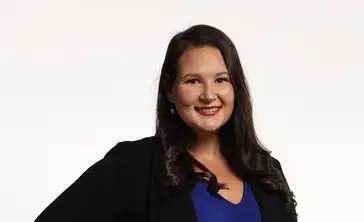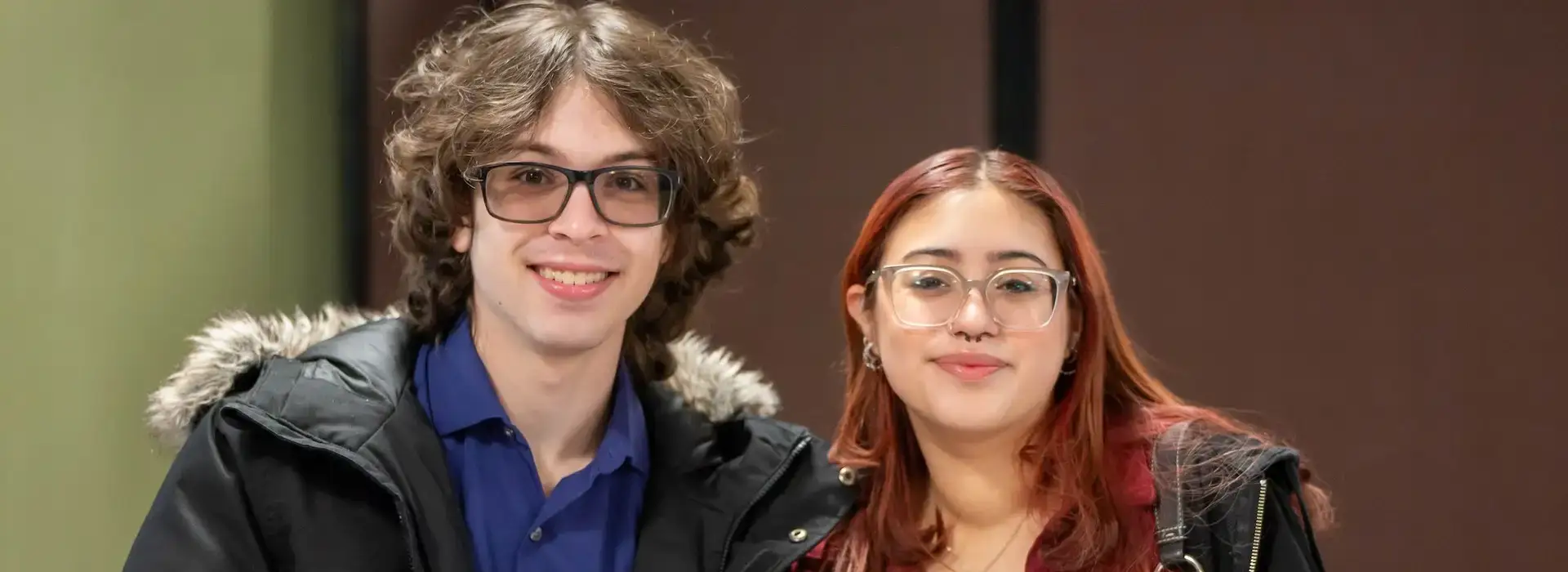What is a First-Generation Student?
You are considered a first-generation student if neither of your parents earned a bachelor’s degree. We know this definition may not fully account for the rich diversity of first-generation college students. For example, your parent(s) may have some college experience but did not earn a degree, or an older sibling or extended family member may have earned a college degree. No matter what your background, SUNY Oneonta is dedicated to supporting your success!
Approximately 38% of our undergraduates and 37% of our fall 2024 first-year students identify as first-generation students.
SUNY Oneonta supports each student with personalized academic advisement, from your first semester through graduation.
Advisers are faculty or staff who will help you navigate your SUNY Oneonta academic experience. They are assigned to you by the major in which you are enrolled. If you are undecided, you’ll still have an adviser; once you declare your major, you will be assigned a new adviser in the department that matches your interest.
When you get involved in campus life, you’ll make social connections, find friends, discover new interests, develop leadership skills and have fun!
Oneonta has more than 150 student clubs and organizations to choose from, a supportive residential life community, and a wide range of activities and events on campus to keep you entertained and engaged. It’s easy to find your place and feel like you’re a part of a community here.
SUNY Oneonta students, faculty and staff welcome people of all backgrounds and strive to be part of an inclusive community that values and celebrates differences.
We have many multicultural student clubs and hold diversity-themed events all year. You can get involved and find support through the Office of Equity and Inclusion Peer Mentor Program, Gender and Sexuality Resource Center, and Center for Racial Justice and Inclusive Excellence.
The advisors and staff in our Financial Aid and Scholarships Office are here to help you navigate the financial aid process each year.
We offer payment plans and a comprehensive financial assistance program that includes grants and scholarships that you do not have to pay back, loans that must be repaid, and student employment income. When you apply for aid, you’ll be assigned a financial aid advisor to support you.
Support Services
Everyone at SUNY Oneonta is rooting for your success, and we have a lot of support services to help you along the way.
- Student Learning Center – one-on-one peer and professional staff tutoring, and courses in writing, math and study skills.
- Accessibility Resources – accommodations such as extended test-taking times, note-taking and large-print course materials for students with learning and other disabilities
- Academic Advisement – help deciding on a major, choosing classes, planning your course schedule, and keeping track of the requirements you need to complete in order to graduate
- Career Planning and Networking Center – prepare for success after graduation with help figuring out what career you want to pursue, finding an internship, writing a resume and practicing for job interviews
- Experiential Learning Center – connects you with hands-on learning opportunities outside of the classroom, including research projects, volunteering, studying abroad and getting an internship
- Office of Student Experience – works with a variety of student populations, including first-gen students.
Paying for College
Paying for college can be a challenge for many families, and the counselors and staff in our Financial Aid Office work hard to make sure all qualified students have the opportunity to pursue a college degree. We offer payment plans and a comprehensive financial assistance program. In 2022-23, 90% of first-year students and 84% of all Oneonta undergraduate students received financial assistance.
The first step in getting help paying for college is to complete the Free Application or Federal Student Aid (FAFSA), available in December at fafsa.gov. SUNY Oneonta will use the information you provide on the FAFSA to determine your family’s ability to pay for your education and the types of financial assistance that may help. You may receive a combination of federal, state and college aid, including grants and scholarships that you do not have to pay back, loans that must be repaid, and income from student employment. Our financial aid advisors are here to help you navigate the application process, every step of the way.
For 2025-26, the total cost to attend SUNY Oneonta is estimated at $29,199 per year for New York State residents and $32,691 for out-of-state residents. This includes tuition, room (residence hall), board (food), books, supplies, transportation and personal expenses.
All first-year applicants will be automatically considered for scholarships based on academic achievement in high school and your family’s ability to pay for college. If you apply by Jan. 15, you’ll have the best chance of receiving a scholarship for the following academic year. These scholarships are renewable for four years. After your first year at Oneonta, you’ll have the chance to apply for a variety of additional scholarships based on academic success in your major, including several scholarships just for first-generation students. In 2022-23, SUNY Oneonta awarded $6.1 million in merit- and need-based scholarships.
Many students work part-time jobs during their time at SUNY Oneonta. These positions can help refine your career interests, develop valuable skills and earn money for books and personal expenses. Our Student Employment office maintains a listing of on- and off-campus jobs. If you receive a Federal Work Study financial aid award, you’ll get first priority for on-campus jobs and receive a paycheck for the hours you work.
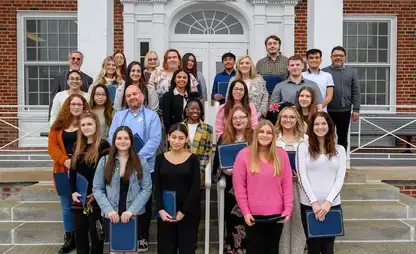
First-Generation Honor Society
To recognize the hard work and academic success of our first-gen students, SUNY Oneonta has established a chapter of Alpha Alpha Alpha (Tri-Alpha), the national honor society for first-generation students. Our first group of honorees was inducted in spring 2022. Membership is open to first-generation students who have earned at least 30 credit/semester hours toward a bachelor’s degree and have achieved an overall grade-point average of at least 3.2 on a 4.0 scale.
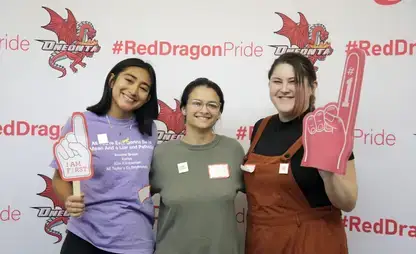
First-Generation Celebration Day
November 8 is National First-Generation Celebration Day! We’re excited to join colleges and universities across the country in recognizing and celebrating the achievements of our first-generation students, faculty, staff and alumni. This is a time not only to recognize your hard work and resilience, but also to help our whole campus community better understand the systemic barriers plaguing higher education and the supports needed for first-generation students to access and succeed at college.
Our Stories
Emely Lopez
SUNY Oneonta, Class of 2025
Computer Science major
Being a first-generation college student is about resilience, determination, and the belief that education can be a transformative force, not just for myself but for future generations in my family.
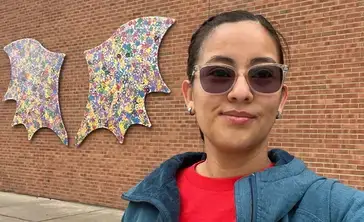
Joshua Nelson
Assessment Specialist at SUNY Oneonta
I completed my degrees without generational/familial knowledge on the processes and procedures in Higher Education. I was intentional about seeking an institution that had a strong First Year program that would help fill the gap in my support.
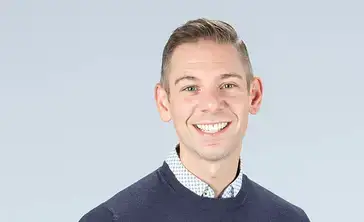
Britney Liddell
SUNY Oneonta, Class of 1993
Business Economics Major
Being a first-generation college student is something I can say with pride. I was never pressured to go to college, but I wanted it for me. My family couldn't be prouder of me, and I want to be a role model for the next generation.
